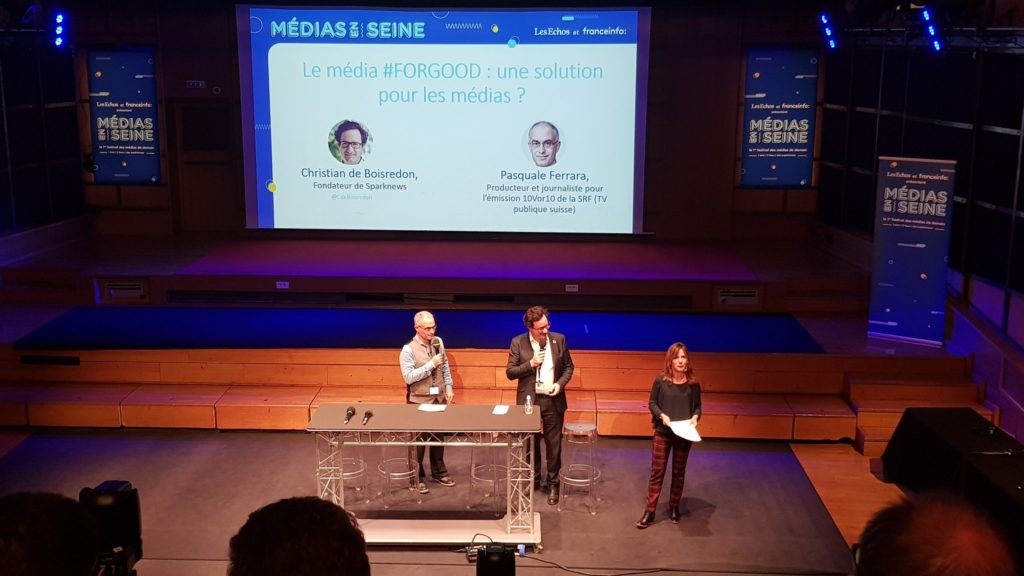
Solution journalism: a way to boost audience engagement
As a partner of the festival Médias en scène, Sparknews organized a conference at La Maison de le Radio’s studio 106 to share its vision on what tomorrow’s journalism will look like. An interesting and engaging perspective for the future of the profession.
On the 22nd of November, Les Echos and FranceInfo teamed up to organize the first edition of the festival Médias en Scène, – an event aimed at imagining the future of media -. Discussions all relating to the future of press, radio and television were conducted throughout a succession of meetings, debates, workshops and conferences at Les Echos’ and Le Parisien’s headquarters and in the studios of Radio France.
The future of media
The prospect of media is uncertain today. CEOs, professionals of French media, advertisers and curious gathered to discuss and analyze the current shift affecting the sector. Deeply impacted by the digital revolution worldwide, the industry is consequently challenged on its current economic and editorial models.
Many points were raised and addressed such as the audience’s engagement, artificial intelligence, virtual reality, strategy to counteract the proliferation of fake news, research of new business models and the establishment of partnerships and strategic alliances. From CNN to the regional daily French press, a total of amongst 150 interveners- including Sparknews- joined the organizers in order to explore the changes to be pursued to reinvent information, its economic model, entertainment and most importantly the role of media today and in the incoming decades.

Journalism with added-value
Even if questioning the future role of media is not new, the realization of a festival highlights the determination shared by most actors of the sector to reinvent their role. In other words, it clearly shows their will to respond to the crisis of trust between the traditional medias and their audience, via the collaboration between actors of the private and public sectors nationally and internationally.
As our society is shifting towards an all-digital/ all-mobile model, medias are going through a considerable shift. A shift that can be compared to the emergence of printing or the release of radio and television in the past centuries. Even if written press was the first to be affected by this transformation, Delphine Ernotte, President of French Television, highlighted during the opening conference of the festival that this societal shift now could possibly have a larger impact and reverberate on television and radio.
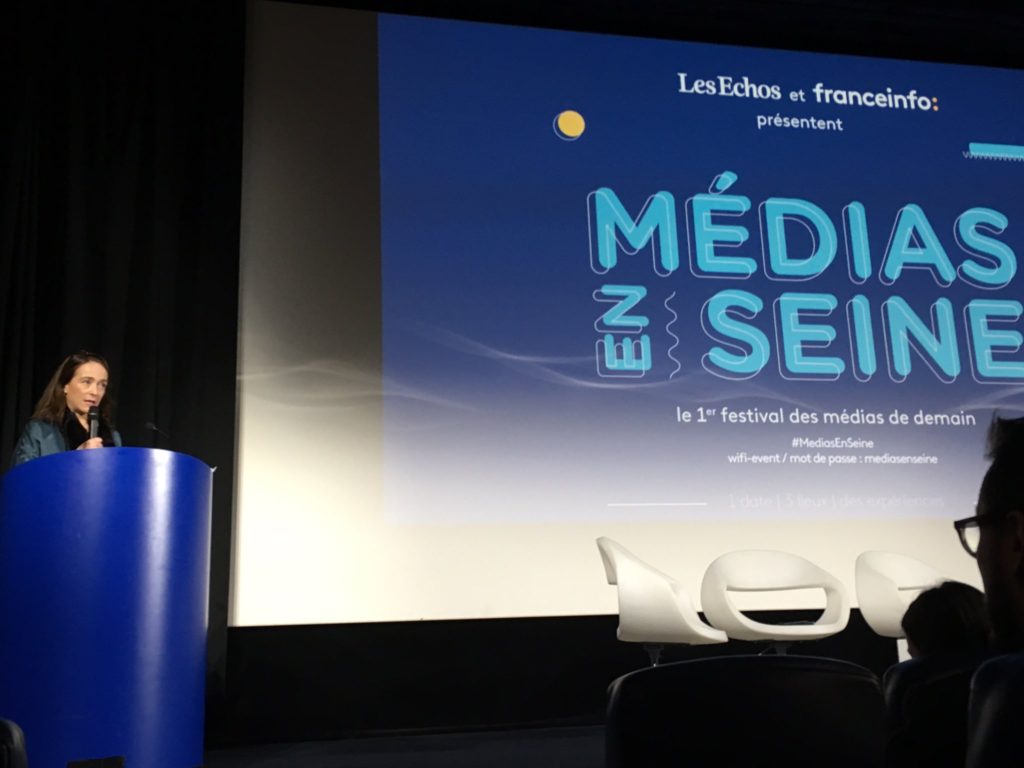
Searching the meaning of journalism
“The question that we are all asking, is a question of survival in this new digital world, and more broadly it is the question that concerns the meaning of our profession and of our purpose” she stated. As this concern is shared by actors of French media and their European and international counterparts, it is necessary to bring simultaneous strategy and response with all relevant actors.
In a world undermined by competition and differentiation, medias are now turning towards more collaboration and more alliances between newsroom, while defending their plurality. With adversaries like the “buzz hunt”, added the leader of France Television, it is fundamental to promote “an added-value journalism”, able to put into light and explain the complexities of social issues.
Such a reinvention of journalism is even more important as it can participate in rebuilding the links with new generations whom have turned away from tradition media formats, despite their interest in news and information. Beyond the conception of new methods of storytelling and new technologies, more and more media professionals share the conclusion that there is a compelling and urgent need to show society as it is.
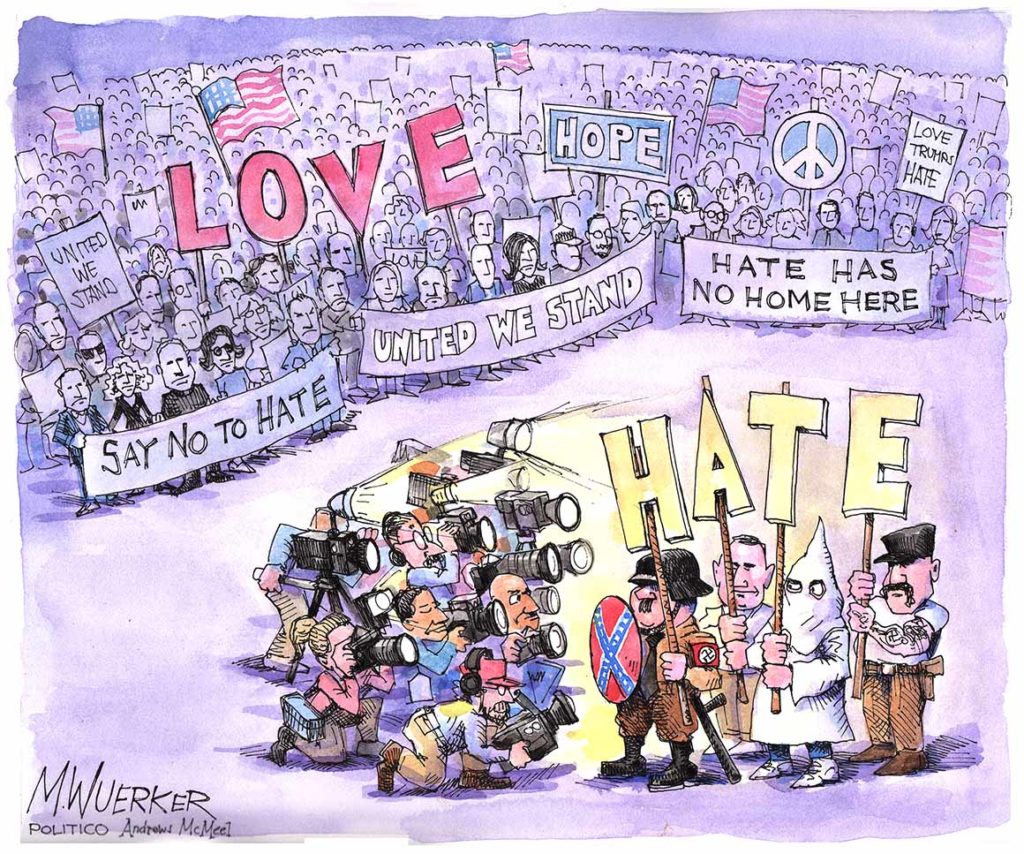
A vision of the world that is more real
With this in mind, solutions (i.e. impact) journalism appears to be a powerful lever able to renew the link between medias and citizens. It is also able to restore the balance between the information spread in society and depict a world in all its complexities, by also sharing the news that inspire and give hope.
« We often confuse it with positive journalism but solution journalism goes beyond the “good news” », explained Christian de Boisredon, founder of Sparknews, during his intervention in the studio 106 of La Maison de la Radio. « It presents a real interest in terms of positive impact for the public who is exhausted by the bad news and catastrophes but is also really interesting for the medias ». The French social enterprise, organized more than a dozen of collaborative solution journalism operation with major newspapers worldwide. For instance, Impact Journalism Day and Solutions&Co are unique opportunities for medias to be part of this adventure since 2012.
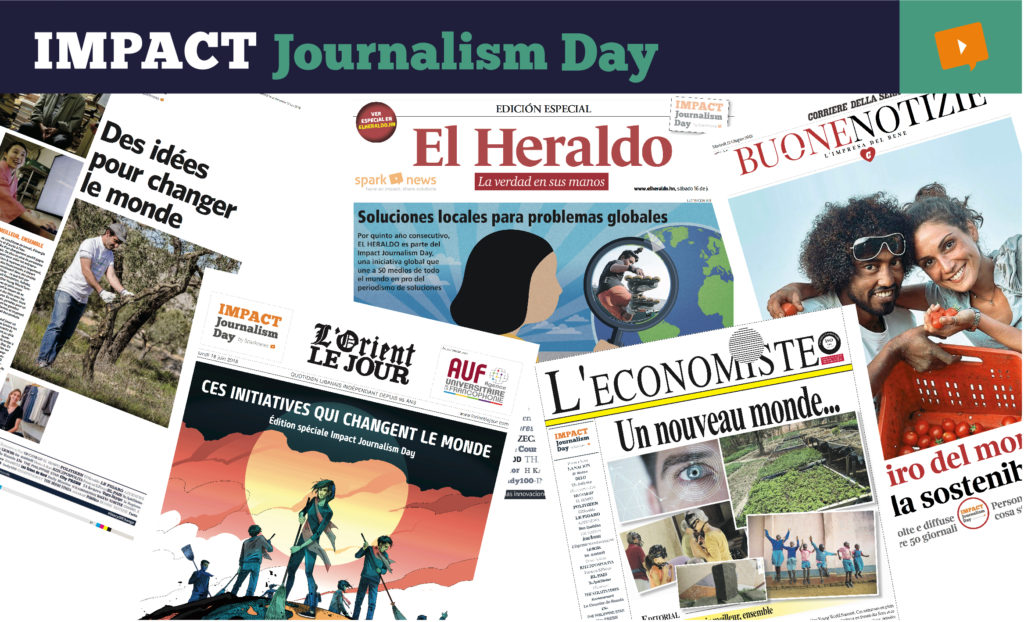
Successful experiences
The positive feedbacks of readers and viewers, the engagement of advertisers and the overall satisfaction of journalists covering those subjects are all proof of the benefits of solution journalism. In Italy for instance, Corriere della Serra has understood it. Since 2017, the Italian newspaper publishes every Tuesdays a supplement of 30 pages , named “Buone Notizie” and dedicated to social innovation and positive projects. Results are undisputable: since starting to publish this supplement, the newspaper sells 10 000 more copies on Tuesday.
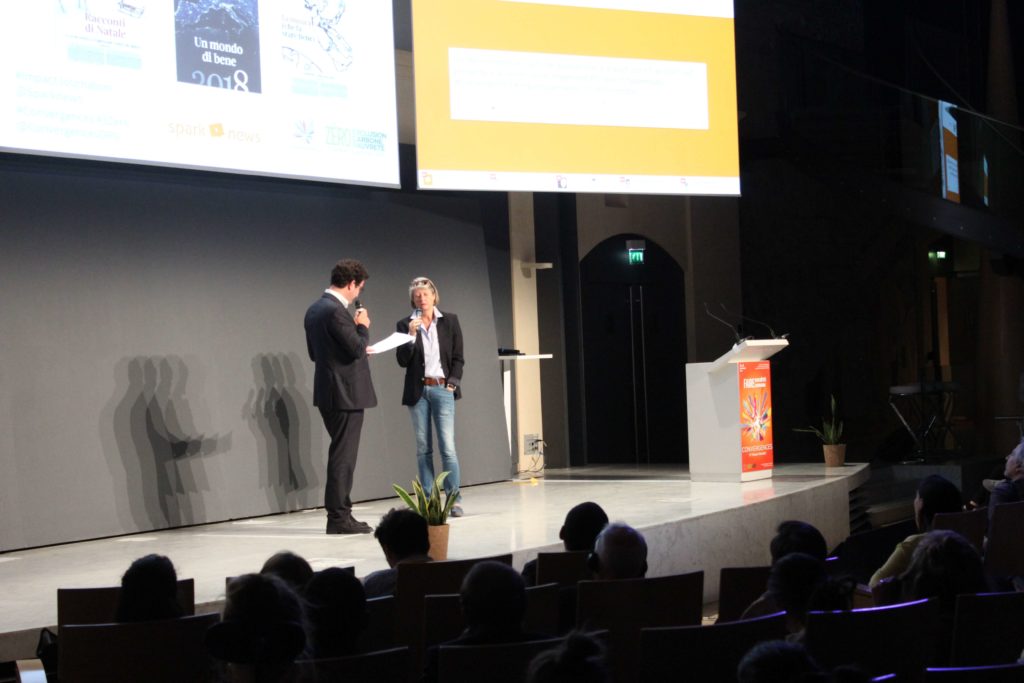
On the other side of the border, in Switzerland, the public channel SRF complemented its news show -10 VOR 10- with a weekly section named “Die Idee”. This section is focused on promoting concrete solutions and is a resounding success according to the audience rating. Alongside Christian de Boisredon, Pasquale Ferrare, producer of the show, has shared at the festival a handwritten letter mailed to him, from a viewer. It states “all of this news can paralyze or lead us to make excuses to act. There are also positive acts that happen around us and across the world. There needs to be more and more people to talk about these subjects- exactly like what you are doing every Friday nights. Keep on addressing these issues please!”.
If the implementation of such a project was not easy, partly due to the apprehension of a part of the redaction concerning solution journalism, the producer has insisted on the necessity for the medias to adopt this approach in order to offer a “more real vision of the world within which we live”. “The journalism of solution is journalism” he argued, also adding that the overcoming of the journalists’ doubts are all signs of the added value that journalism of impact can bring to the public. An added value which is necessary for the future and that could take a significant part in the shaping of the media of the future”.




